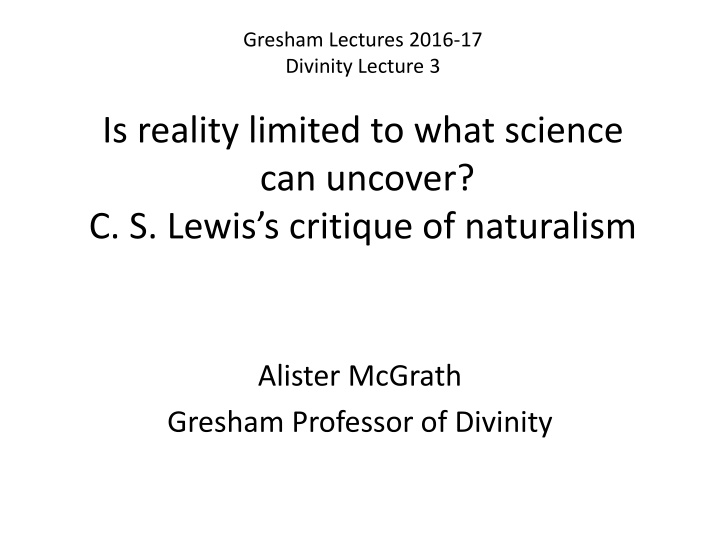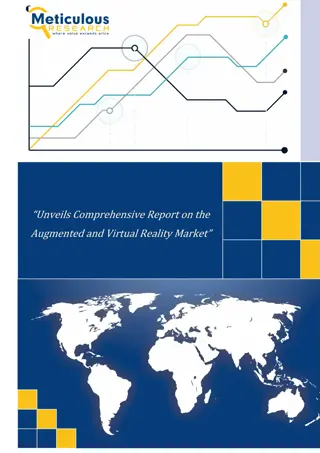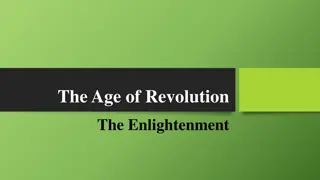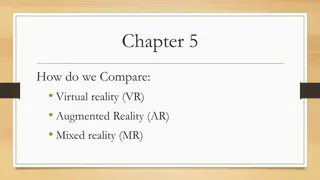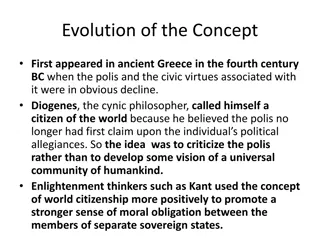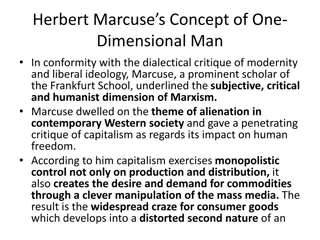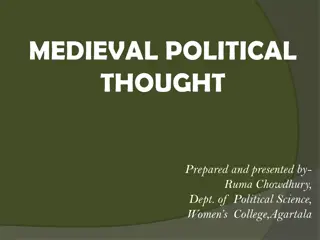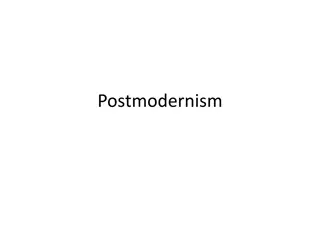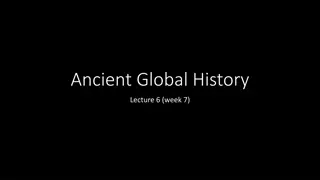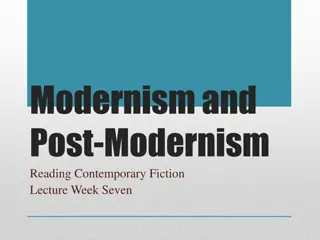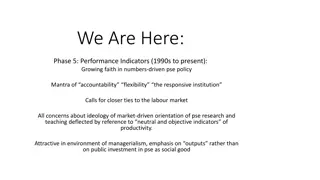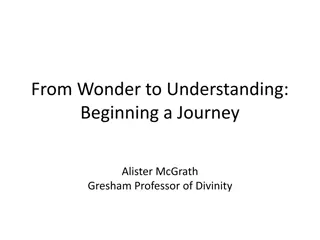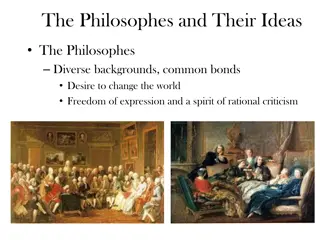Perspectives on Reality: Critiques and Reflections from Notable Thinkers
Explore diverse viewpoints on reality and the limits of scientific inquiry through the critiques and reflections of renowned figures such as C.S. Lewis, Alister McGrath, Alex Rosenberg, R.G. Collingwood, Roger Scruton, Isaac Newton, William Inge, and John Henry Newman. This collection delves into the intersections of science, philosophy, and theology, offering intriguing insights on the nature of existence and human understanding.
Download Presentation

Please find below an Image/Link to download the presentation.
The content on the website is provided AS IS for your information and personal use only. It may not be sold, licensed, or shared on other websites without obtaining consent from the author.If you encounter any issues during the download, it is possible that the publisher has removed the file from their server.
You are allowed to download the files provided on this website for personal or commercial use, subject to the condition that they are used lawfully. All files are the property of their respective owners.
The content on the website is provided AS IS for your information and personal use only. It may not be sold, licensed, or shared on other websites without obtaining consent from the author.
E N D
Presentation Transcript
Gresham Lectures 2016-17 Divinity Lecture 3 Is reality limited to what science can uncover? C. S. Lewis s critique of naturalism Alister McGrath Gresham Professor of Divinity
Alex Rosenberg The Atheist s Guide to Reality (2011) Science provides all the significant truths about reality, and knowing such truths is what real understanding is all about. Science is our exclusive guide to reality.
Alex Rosenberg The Atheist s Guide to Reality (2011) Is there a God? No. What is the nature of reality? What physics says it is. What is the purpose of the universe? There is none. What is the meaning of life? Ditto. What is the difference between right and wrong, good and bad? There is no moral difference between them.
R. G. Collingwood The chief business of twentieth-century philosophy is to reckon with twentieth-century history.
Roger Scruton Scientism involves the use of scientific forms and categories in order to give the appearance of science to unscientific ways of thinking. It is a form of magic, a bid to reassemble the complex matter of human life, at the magician s command, in a shape over which he can exert control. It is an attempt to subdue what it does not understand.
Isaac Newton I seem to have been only like a small boy playing on the sea-shore, diverting myself in now and then finding a smoother pebble or a prettier shell than the ordinary, whilst the great ocean of truth lay all undiscovered before me.
William Inge (1860-1954) Rationalism tries to find a place for God in its picture of the world. But God . . . cannot be fitted into a diagram. He is rather the canvas on which the picture is painted, or the frame in which it is set.
John Henry Newman I believe in design because I believe in God; not in God because I see design.
C. S. Lewis Dreams of the far future destiny of man were dragging up from its shallow and unquiet grave the old dream of man as god. Mechanism, like all materialist philosophies, breaks down on the problem of knowledge. If thought is the undesigned and irrelevant product of cerebral motions, what reason have we to trust it?
G. K. Chesterton The man who represents all thought as an accident of environment is simply smashing and discrediting all his own thoughts including that one.
J. B. S. Haldane (1882-1964) If my mental processes are determined wholly by the motions of atoms in my brain I have no reason to suppose that my beliefs are true. They may be sound chemically, but that does not make them sound logically. And hence I have no reason for supposing my brain to be composed of atoms.
C. S. Lewis When the man said This is sublime, he appeared to be making a remark about the waterfall. ... Actually... he was not making a remark about the waterfall, but a remark about his own feelings. What he was saying was really I have feelings associated in my mind with the word Sublime , or shortly, I have sublime feelings.
T. H. Huxley Evolution may teach us how the good and the evil tendencies of man may have come about; but, in itself, it is incompetent to furnish any better reason why what we call good is preferable to what we call evil than we had before.
Charles Darwin The western nations of Europe ... now so immeasurably surpass their former savage progenitors [that they] stand at the summit of civilisation ... The civilised races of man will almost certainly exterminate and replace the savage races through the world.
Charles Darwin The inevitable result is an ever-recurrent Struggle for Existence. It has truly been said that all nature is at war; the strongest ultimately prevail, the weakest fail. The severe and often-recurrent struggle for existence will determine that those variations, however slight, which are favourable shall be preserved or selected, and those which are unfavourable shall be destroyed.
